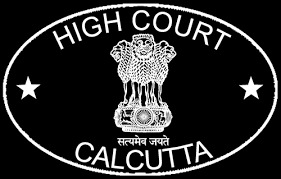John Edge, Kt., C.J.@mdashThis is an action brought by the representatives of a purchaser at an auction-sale of the interest of one Umrao Singh in a village sold in execution of a decree on the 20th August 1874. One Rao Nirand Singh had a son named Jawahir Singh. Jawahir Singh had two wives. By his first wife he had a son Umrao Singh, who is still alive, and whose property was sold. Jawahir Singh''s second wife was Musammat Galotan. By her he had a son, whose widow, Musammat Kachwain, is the defendant in this action and appellant in this appeal. Rao Nirand Singh and Jawahir Singh died previous to the 20th August 1874. Musammat Galotan, on the 26th July 1882, executed a deed of gift in favour of the defendant-appellant, and on the 26th January 1883, Musammat Galotan died. The deed of gift related to 105 bighas of land which were situate in the village in question and form the subject of the claim in this action. The plaintiffs contended that Umrao Singh had given those bighas in dispute to Musammat Galotan for her life for maintenance. The finding on remand is in accordance with that contention. The defendant, on the other hand, contends that the bighas in dispute had been given by Rao Nirand Singh to Musammat Galotan, and that the gift had been confirmed by Umrao Singh''s father, Jawahir Singh. That contention has been disposed of by the findings on remand. Many questions were raised by the appellant before us. It was contended that at the date of the sale in 1874, Umrao Singh had no interest remaining in the bighas in question that could be sold u/s 205 of Act VIII of 1859, and it was contended that after the gift made by Umrao Singh to Musammat Galotan, Umrao Singh stood in no better position than that of a first expectant reversioner to property in possession of a childless Hindu widow. It appears to me that the position of Umrao Singh was very different to that of such a reversioner. What bad been done in effect was this. Musammat Galotan, being entitled to maintenance, Umrao Singh, who was the full owner of the whole village, gave her for her life the usufruct of these 105 bighas in lien of her maintenance, limiting the grant to her for her life, and she accepted the bighas on those terms. Umrao Singh''s interest, as it appears to me, was much more than the mere expectancy of a reversioner to property on the death of a Hindu widow. It was of the same character, and carried with it the same consequences, in my opinion, as the reversion which the lessor would have for land leased for life or years, and would be analogous to the right which a mortgagor who had granted a usufructuary mortgage would have. It is misleading to use in connection with such a right the term "expectancy." On the determination of the life-interest, the right to possession would be in Umrao Singh or his assignee, or if he had not assigned and had died, then in his heirs. I think that the cases cited by Mr. Colvin Koraj Koonwar v. Komal Koonwar 6 AnWR 34 Ram Chunder Tantra Doss v. Dhurmo Narain Chukerbutty 15 AnWR 17 do not apply. The case which was cited to us, namely, Tuffuzzool Hossein Khan v. Raghoonath Pershad 14 Moo I. A. 41 obviously does not apply. That was a case in which the thing which was sold auction was the chance of the success of a party in an arbitration. It was said on behalf of the appellant further that the bighas in question, having been granted by Umrao Singh to Musammat Galotan in lien of maintenance, they became her stridhan, and that Umrao Singh ceased to have in them a saleable interest. That proposition would be a correct view of the law if Galotan''s interest had not been limited to an interest for her life. This was not an absolute gift by Umrao Singh, but merely a grant to operate during the lifetime of Musammat Galotan. There was a considerable amount of legal argument as to the rights of a Hindu widow in the property left by her husband in respect of her right of maintenance. I do not think that any of those arguments assist us in the determination of this case, which is not one of partition, but is one of a private arrangement between Umrao Singh and Musammat Galotan, by which he agreed to give to her and she agreed to receive from him, these bighas for her life only and as a mode of payment of her maintenance. In my opinion, whatever might have been the position of Musammat Galotan if this had not been the arrangement that had been come to, we must give effect to that arrangement or agreement, and consider the effect of that agreement only. In the result I have come to the conclusion that Umrao Singh had a vested right to these bighas in question which was capable of being sold at the auction-sale, and that that right, that is, the right of possession on the death of Musammat Galotan passed to the auction-purchaser at the sale on the 20th August 1874. The appellant before us may or may not be entitled to maintenance out of these lands in question. That point has not been raised in the action and no issue has been framed relating to it, and consequently I do not think I would be justified in giving any opinion on the subject. In my opinion this appeal should be dismissed with costs.
Mahmood, J.
2. I am of the same opinion.

